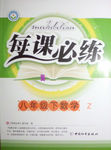题目内容
17.Little Free Library is a nonprofit organization that in spires a love for reading and builds community.It is also referred to(61)asneighborhood book exchanges the world.This is a creative idea (62)thought (think) up by Todd Bol and Rick Brooks in 2009,which seeks(63)to put (put) small book exchange boxes right in front of a house or on a street corner to offer free books to(64)members (member) of the local community.Mini libraries of all shapes and sizes exist,from a(65)brightly (bright) painted wooden house to a library based on Doctor Who's TARDIS.(66)Whatmakes the idea so special?Their website states:"Little Free Libraries have a unique,personal touch and there is an understanding that people are sharing their favorite books with their community.These are not just any old books(67)buta carefully organized collection.Besides,the library(68)itself (it) is a piece of neighborhood art!"
Through Little Free Libraries,millions of books(69)are exchanged(exchange) each year among readers of all ages and backgrounds.They also play an important role in remote areas by(70)providing (provide) access to books and encouraging a love for reading.
分析 本文是一篇说明文,主要介绍了由Todd Bol 和Rick Brooks设计的免费图书馆.
解答 61.as;考查介词.refer to as是固定搭配,表示"称为",句意为它也被称为社区图书交流的世界.故填as
62.thought;考查非谓语动词.idea与think之间是逻辑上的动宾关系,表示被动,所以用过去分词作后置定语,故填thought.
63.to put;考查非谓语动词.seek to do表示"争取、力图",需要接动词不定式作宾语,故填to put.
64.members;考查名词.member是可数名词,此处用复数表示泛指,故填members.
65.brightly;考查副词.修饰动词painted用副词,故填brightly.
66.What;考查疑问词.此处是说"什么让这个想法如此特别?"表示什么用what,故填What.
67.but;考查连词.not just…but…事故固定搭配,表示"不但…而且",故填but.
68.itself;考查代词.此处表示"图书馆本身",故填itself.
69.are exchanged;考查时态语态.books与exchange之间是被动关系,且文章的基础时态为一般现在时,所以用一般现在时的被动语态,故填are exchanged.
70.providing;考查动名词作宾语.by是介词,需要接动名词作宾语,故填providing.
点评 解答此类题目,首先需要通读全文,掌握文章大意;其次分析每一个空格前后的语意和语境,进而根据相关语法选择正确的答案.

练习册系列答案
 每课必练系列答案
每课必练系列答案
相关题目
3.The moment I set _____ foot on the southern town of China,I realized that it had much in _____ common with Venice.( )
| A. | a; the | B. | the;/ | C. | /; the | D. | /;/ |
8.Three scientists _____ discovered how the brain knows the body's location won the Nobel Prize.( )
| A. | whose | B. | which | C. | whom | D. | Who |